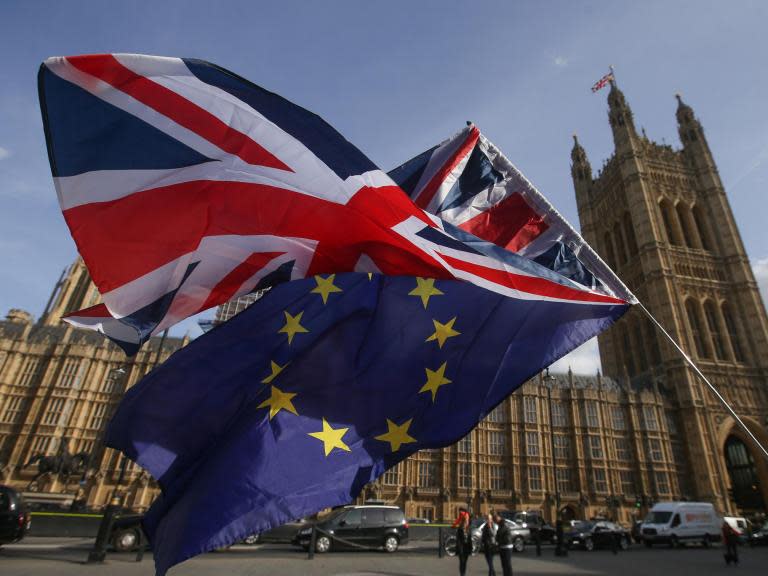Brexit bill delayed over Government fears it would be defeated in Commons revolt
Brexit preparations have been plunged into further chaos after the key legislation was shelved for up to a month because of Commons revolts.
The flagship European Union (Withdrawal) Bill is not expected to be put back before MPs until mid-November. It was originally due to be debated this week.
The move follows an avalanche of amendments – some signed by significant numbers of Tory backbenchers – which threaten the Government with defeat.
Labour immediately seized on the delay as further evidence that the withdrawal process was unravelling.
Sir Keir Starmer, the Shadow Brexit Secretary, said: “This is further proof that the Government’s Brexit strategy is in paralysis.
“The negotiations are in deadlock and now a crucial piece of legislation is facing further delay.”
The Prime Minister’s official spokesman did not dispute that line-by-line scrutiny of the bill would be delayed until after a Commons recess, which ends on 13 November.
The latest hold-up follows warnings, from both veteran pro-EU Tory Ken Clarke and Labour, that Parliament will use the EU withdrawal bill to veto a no-deal Brexit.
A key amendment, co-tabled by Mr Clarke, demands that the Prime Minister’s plan for a two-year transition period is written into law.
It would prevent the Government setting an “exit day” if that transition is not agreed in Brussels.
This week, Mr Clarke warned Ms May: “This is a parliamentary democracy – Parliament can do practically whatever it likes.”
Ministers are weighing up a concession on a second key amendment to give MPs more muscle, by requiring the final vote on the negotiations to form a separate act of Parliament.
They face further Conservative challenges over the use of “Henry VIII powers” to bypass MPs in making post-Brexit laws.
The delay is crucial – and embarrassing – because the bill is the mechanism for pasting EU law onto the UK statute book before Brexit day, in March 2019, to avoid a legislative “black hole”.
There will be a further hold-up when the Lords eventually gets its teeth into the legislation – which is now not expected until next year.
One government source admitted to the BBC that the bill could not yet be brought back to the Commons because there “is not enough political agreement yet”.
However, a source at the Brexit Department insisted it was not being delayed – because a date for it had never been set.
But it was widely expected that the bill had to enter its committee stage in early October, if the Government was to have any chance of getting it through Parliament by the spring.
Speaking on the BBC’s Daily Politics, Brexit minister Robin Walker said MPs would be debating it “within weeks” and that it would offer “continuity and certainty” as the UK leaves the EU.

 Yahoo News
Yahoo News 

